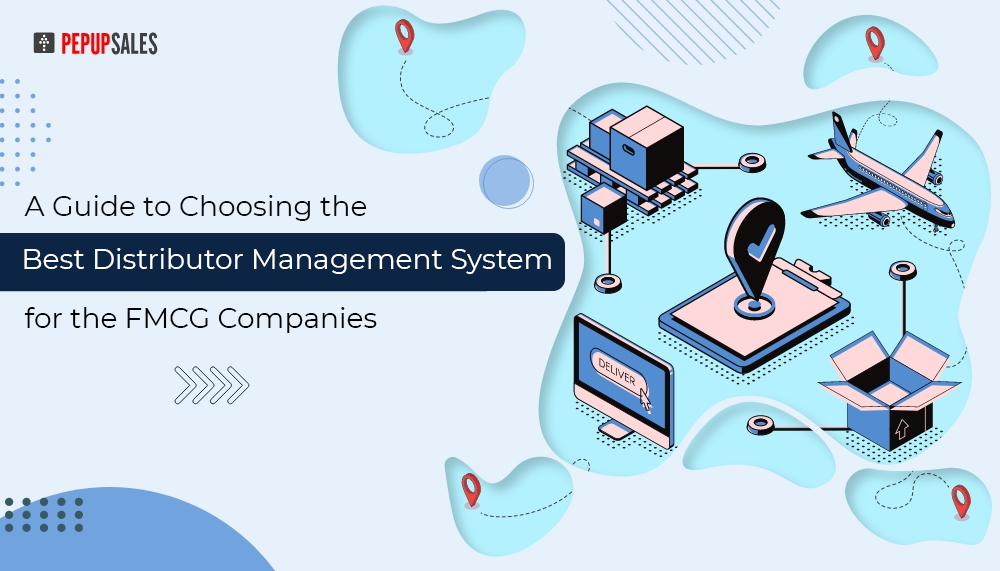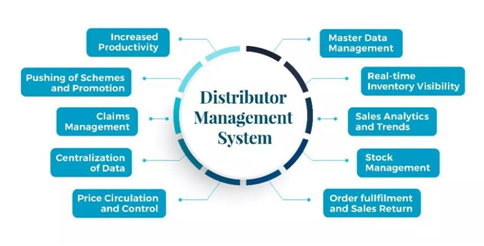Distributor management refers to the successful movement of goods from producing to selling. It is like an umbrella term that consists of various activities such as warehouse management, inventory management, logistics management, and supplier-vendor relationship management.
There have been significant changes in the supply chain industry. According to Forbes, around 65% of executives in the logistics, supply chain, and transportation sectors believe that the industry has noticed massive changes in recent times. However, it is also suffering from slight disruption. Many businesses are switching to a distributor management system to automate the business process.
What Is Distributor Management?
As suggested earlier, distributor management refers to the process of managing a product from producing it to delivering it. With the help of distributor management software, you can check everything you’re offering to the customer.
Within the distributor management system, you will track various activities. In some instances, distributor management systems can also help with blockchain.
Importance Of Distributor Software For FMCG
Consumer goods companies must analyze the market expansion rate and develop strategic management supply chains, and this helps them establish long-term relationships with distributors. Choosing the right distributor software for FMCG can play an essential role in adding value to your business.
Furthermore, the importance of the best FMCG distribution software includes the following:
1. Reducing Pilferage
When companies invest in a good distributor management system, they contribute towards lowering the pilferage cost for business. Furthermore, it also reduces the overall capital cost for overstocking.
2. Integration Of Business Operations
Businesses should focus on integrating business operations at a large scale. The distributor management system helps to offer a centralized platform of communication for the company and distributors. Therefore, it can be said that the software helps to fix the communication gap and integrate it all within a single platform.
3. Better Visibility Of Secondary Sales
When you analyze the secondary sales, you can focus on sales execution. With better visibility of secondary sales, businesses can focus on including different strategies that will help to improve their trade scheme.
4. Better Distributor Experience
The main aim of distributor management software is to offer an organized management system. It also helps to provide automated claims with proper reward management. A proper distributor experience promises long-term relationships.
5. Utilization Of Offers And Schemes
When you have secondary sales visibility, you can utilize the offers and schemes that distributors usually give. With real-time data integration, companies can use these schemes most effectively.
How To Choose The Distributor Management Application?
A distributor software will play an essential role in integrating the business. According to ISM, in 2019, around 39% of companies had to suffer a ‘war room’ situation because of disruptions in the supply chain market.
The right distributor software for FMCG can help bring a significant difference in the business, and it will help you analyze how to manage the distributor nuances. If you plan to use distributor management software, you need to consider different factors while choosing it.
Some of the most critical factors that can help you choose the best distributor management software include:
1. Understand The Retail And Distributor Landscape
Before choosing software, you need to know what your retail and distributor landscape looks like. The distributor management software that you choose should solve problems within the retail visibility. Furthermore, the software should also share compatibility with your distributor management.
You need to check if you need any additional services such as cloud integration and more. If you need such services, you need to choose software that caters to those needs.
2. Does It Solve The Adoption Issues Within Your Business?
Many businesses are likely to face adoption problems. If the software doesn’t ease the lack of adoption problems, you shouldn’t use it. Adoption issues include catering to the demand of multiple brands.
Whenever you choose a distributor management system, you need to analyze if it solves the major issues. The system you choose should cater to your current distributor landscape, which helps to ensure that you will get long-term benefits of accessing benefits for your business.
3. Ease Of Use
Is the platform easy to use? Not only should a distributor management system be compatible, but it should also be easy to use. This will help determine that everyone within the business ecosystem can use the platform properly.
You should check if it can be easily integrated into your system or not. This will help you understand if you are using it correctly.
4. Get Free Demos
Many distributor management software providers offer free demos. With the help of demos, you will be able to check if the particular software meets your brand requirements or not. Yes, you should refrain from purchasing any software that isn’t compatible with your system.
Apart from demos, you should also check the reviews. Unless you have positive reviews about the platform, do not purchase it.
5. Implementation Timeline
How long does it take to implement the software? Implementation has always been one of the tough challenges. You need to ensure that the software doesn’t take a lot of time to implement and can be easily used by the employees and teammates.
Whenever choosing software for your business, you need to identify your goals. Furthermore, you can track data across the platform and create a realistic timeline to receive better results. You need to know what you’re getting into to have the best results.
Final Words
The B2B businesses are moving in a positive direction. You need to identify the distributor management system that will fit the requirements. You should also consider choosing a plan that will suit your needs and add value to the organization.
You can compare the different options and choose one that fits your needs the most. Research is crucial to ensure that there is no risk of drawbacks, and the system should bring about creative and budget-friendly results. However, it is advisable to choose software that will bring maximum benefits to your business and help you overcome the challenges.




